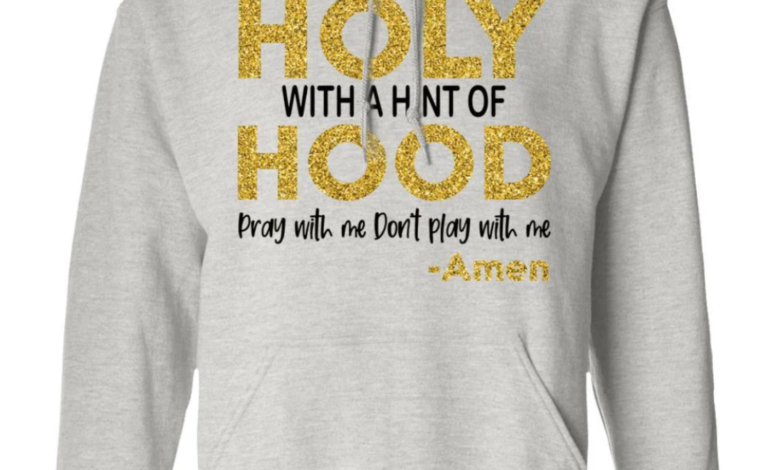Why the Don’t Pray for Me shirt is Sparking Conversations About Faith and Individuality

Introduction to the Don’tn’t Pray for Me shirt.
In a world where fashion often sparks dialogue, the “don’t pray for me shirt” has emerged as more than just an article of clothing; it’s become a bold statement about faith and individuality. This eye-catching garment turns heads and raises eyebrows, prompting conversations that delve deep into personal beliefs and societal norms. What began as a simple design has transformed into a cultural phenomenon, inviting people to share their thoughts on spirituality in an increasingly complex world. Whether you see it as provocative or empowering, one thing is clear: this shirt gets people talking don’t pray for me shirt.
The meaning behind the Don’tDon’t Praydon’tPray for Me shirt.

don’t pray for me shirt carries a powerful message. It reflects a desire for autonomy in matters of faith and spirituality. Many wear it as a statement against unsolicited prayers, emphasizing personal choice over communal belief don’t pray for me shirt.
For some, this phrase resonates deeply. It rejects the idea that someone else’s faith should dictate their journey and champion individuality and self-determination don’t pray for me shirt.
Moreover, the shirt sparks conversations about what prayer means to different people. Is it comfort or an imposition? This ambiguity allows individuals to express their feelings toward religious practices openly don’t pray for me shirt.
The design often uses bold typography and striking visuals to ensure the message is clear. Wearing this shirt isn’t just about fashion; it’s about standing up for one’s beliefs while inviting dialogue on an often-sensitive topic don’t pray for me shirt.
There is controversy surrounding the don’t pray for me shirt.
Since its emergence, the “don’t pray for me shirt” has stirred significant debate. At first glance, it seems provocative and bold. For many, the phrase challenges traditional expressions of faith don’t pray for me shirt.
Critics argue that the shirt dismisses the power of prayer and undermines community support in spiritual matters. This perspective ignites discussions about respect and understanding of diverse beliefs don’t pray for me shirt.
On the flip side, supporters see it as a declaration of individuality. It resonates with those who feel marginalized or misunderstood by mainstream religious practices. Wearing this shirt becomes an act of empowerment rather than defiance.
Social media buzz amplifies these conversations, turning simple fashion into a platform for more profound discourse on personal belief systems and authenticity in faith expression. The controversy encourages dialogue that transcends mere clothing choices, inviting people to rethink their views on spirituality today.
Conversation about faith and individuality
The “Don’t Pray for Me shirt” has sparked a significant dialogue about the intersection of faith and individuality. It challenges traditional norms, prompting individuals to reflect on their beliefs.
Wearing this shirt becomes an act of self-expression. It’s not merely clothing; it’s a statement that encourages personal autonomy in spiritual matters. Many wear it to assert their right to choose how they engage with faith.
This movement invites open discussions about what spirituality means in modern life. People question societal expectations regarding prayer and religion’s role in their lives.
Each conversation can lead to deeper understanding—both of oneself and others’ perspectives. The blend of faith with personal identity is complex, yet this shirt simplifies the message: respect individual spiritual choices without judgment or imposition.
Impact on society and personal beliefs
The “don’t pray for me shirt” has become more than a fashion statement. It challenges societal norms around faith and spirituality. Many wear it as a badge of individuality, resisting the pressure to conform to traditional religious practices.
This shirt sparks discussions about personal beliefs. It invites people to reflect on what faith means in their lives. Some see it as an expression of autonomy; others consider it provocative or dismissive.
The impact ripples through communities, encouraging open dialogue about spirituality versus individualism. Conversations shift from blind acceptance to critical thinking about belief systems.
As more individuals don this bold apparel, they create spaces where differing perspectives can coexist. This fosters an environment ripe for understanding and exploration of one’s values and convictions without fear of judgment or conformity.
Responses from those who have worn the Don’t Praydon’tPray for Me shirt.
People who have worn the “don’t pray for me” shirt often share potent reactions. Many express that it serves as a personal statement about their beliefs. For some, it’s a way to challenge traditional views on faith and spirituality.
Wearers report mixed responses from others. Some appreciate the boldness of the message, while others feel offended or confused. These contrasting opinions spark deeper discussions in various social settings.
Several wearers find camaraderie among like-minded individuals. They enjoy connecting with those who appreciate individuality over conformity. This sense of community can be empowering.
Social media posts featuring this shirt frequently go viral, generating significant engagement. Comments range from supportive to critical, illustrating how divisive yet thought-provoking the messaging can be.
Wearing this shirt encourages conversations that may not occur otherwise, centered around personal belief systems and societal expectations.
Conclusion
The “don’t pray for me shirt” has undeniably become a powerful symbol in discussions about faith and individuality. Its bold message resonates with many who feel that personal beliefs should be respected regardless of societal expectations. The controversy surrounding it only adds to its allure, drawing attention from various viewpoints on spirituality.
As the shirt sparks conversations across different communities, it encourages more profound reflection on what faith means to each person. It challenges traditional notions and invites people to explore their beliefs without fear of judgment. This dialogue is essential in fostering understanding and acceptance among diverse perspectives.
Those who wear the shirt often share compelling stories of embracing their individuality while navigating complex relationships with faith. Their experiences highlight a growing movement towards authenticity in spirituality—a journey many find liberating.
The impact of the “don’t pray for my shirt” extends beyond just fashion; it’s part of a more significant cultural shift toward recognizing personal belief systems as valid expressions of identity. As these conversations continue, we may find ourselves more open-minded and compassionate toward others’ journeys through faith and self-discovery.





